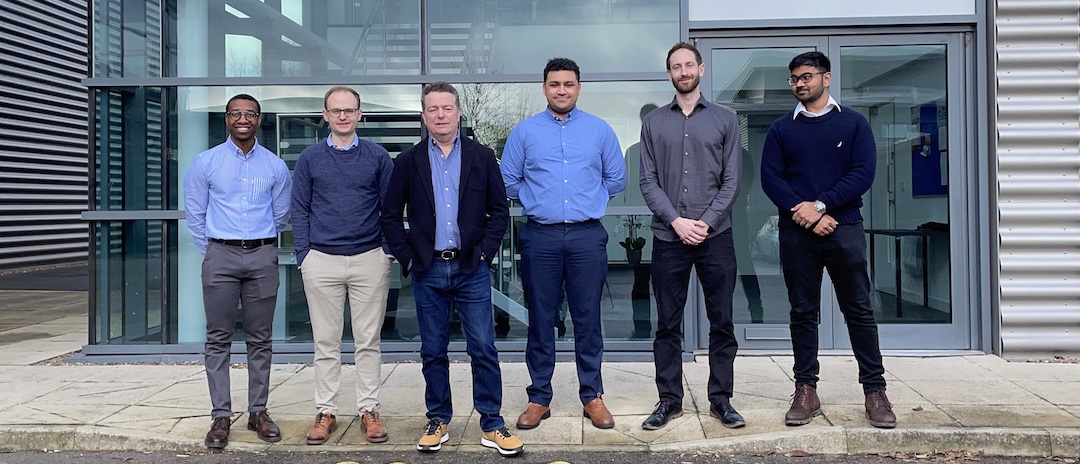Suiso – a UK company developing an innovative hydrogen generator that could boost uptake of green energy – has raised £3m from NPIF – Mercia Equity Finance, which is managed by Mercia Ventures and part of the Northern Powerhouse Investment Fund, and Mercia’s EIS funds.
The company plans to create generators the size of shipping containers that could be placed on site to power factories, hospitals, and warehouses or at filling stations to fuel hydrogen-powered vehicles.
Producing hydrogen where it is needed eliminates the high costs involved in distribution from a large, centralised plant, which has been one of the key barriers to adoption. It also allows businesses that want to decarbonise their operation to start much sooner than waiting for large-scale hydrogen plants to be built.
Suiso’s process produces low-cost, low-carbon or zero-carbon energy. It uses a novel microwave technology to extract hydrogen from natural gas or biogas, while capturing the carbon in the form of carbon black, a valuable byproduct that can be used to make tyres, batteries and inks. As existing methods of carbon black production create high levels of emissions, Suiso’s technology can help decarbonise these industries too.
A study by the Department of Business, Energy & Industry Strategy (BEIS) confirmed that, for many key applications, Suiso’s technology is lower cost and produces lower emissions than existing production methods such as grid-powered electrolysis, and 97% lower than steam methane reforming, making it one of the greenest forms of hydrogen available. It also uses 80% less electrical energy than electrolysis, therefore putting less stress on the grid network.
Based in Rotherham, Suiso was founded by engineer and financier Stuart McKnight and serial entrepreneur Dr SB Cha, whose father invented Suiso’s microwave technology. The company was one of the winners of the BEIS Low Carbon H2 Supply scheme in 2023.
The latest investment will enable it to scale up its technology and begin a pilot project. Ultimately it aims to produce generators that can produce 1,000 kg of hydrogen a day – equivalent to 1.6 MW of energy and enough to fuel 50 20-tonne trucks. The company, which currently employs five staff, expects to create seven new jobs in the next six months.
Stuart McKnight, CEO of Suiso, said: “Hydrogen is rapidly emerging as a sustainable way to decarbonise the economy, but cost, availability and other practical issues have held back its use. Our technology offers a way to overcome these and provide clean, low-cost power on site. For some organisations, Suiso’s on site hydrogen generation may be the only realistic ‘green’ option – for example, energy-intensive industrial applications such as large boilers or furnaces, heavy lifting gear or HGV and truck refuelling. This investment will help us move to the next stage on our journey to bring it to market.”
Ashwin Kumaraswamy, Investment Director with Mercia Ventures, added: “Suiso has found a way to decarbonise natural and biogas to produce ‘greener’ hydrogen than many current methods of production including grid powered electrolysis, and a zero-emission form of carbon black which is a valuable product in itself. This technology could make hydrogen a viable option for many businesses and drive rapid uptake. With growing global demand for clean energy, we are confident that Suiso will have many opportunities ahead.”
Keira Shepperson, Director, British Business Bank said: “Suiso’s dedication to the use of greener and cleaner energy showcases it as a future-focused business, committed to helping the country meet its net-zero targets. As it continues to prosper, we look forward to supporting it in its growth journey. The Northern Powerhouse Investment Fund remains dedicated to investing in innovative businesses, and particularly those striving towards a greener future.”
The current NPIF investment phase has now completed with the British Business Bank launching the Northern Powerhouse Investment Fund II in March 2024.
The Northern Powerhouse Investment Fund project is supported financially by the European Union using funding from the European Regional Development Fund (ERDF) as part of the European Structural and Investment Funds Growth Programme 2014-2020 and the European Investment Bank.
